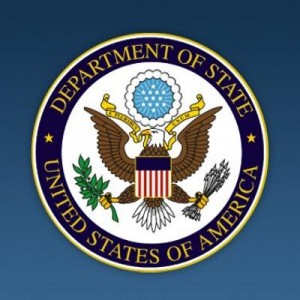BY RAUL HERNANDEZ

Before Hillary’s emails were taken hostage by political gasbags, and Edward Snowden left the country with a computer full of National Security Agency’s surveillance program’s secrets, Ventura County resident Jack Futoran got a jaw-dropping package.
It was from the U.S. Navy, and inside were a stack of secrets.
Jack expected the package but not the classified information or a list of several pages with federal employee names and Social Security numbers.
Navy officials sent Jack what he requested: a 2008 investigative report that strongly recommended that Jack’s client, Gary Biggers and others never have access to military classified information.
The Navy’s report stated that under Biggers’ watch there was a slew of security lapses that the report’s author called “lax” and “dangerous.” The unclassified report strongly recommended that at least three employees, including Biggers, be stripped of their security clearances.
Jack, who had not yet retired as a lawyer, has always denied these allegations.
Noting that Biggers was an engineer who worked 31 years with the engineering command. He had also been named its engineer of the year.
Biggers hired Jack Futoran to clear his name, and get his reputation back along with the pay he lost during his suspension.
Accused of not following rules, the Navy suspended Biggers, of Ventura, a security manager for the Naval Facilities Engineering Service Center at Port Hueneme in 2008 after 10 months on the job.
“On a very basic level, Mr. Biggers has simply failed to ensure his employees performed their jobs in compliance with established security directives,” the report stated, adding that Biggers failed to recognize and correct “significant deficiencies” in the program, the Navy told Jack.
Biggers had said he was trained for the security manager position for two weeks, that he was not a security expert and that he was never provided with the expertise to do his job. He said the report’s author never even bothered to talk to him during his investigation.
The Newspaper Story
The story gets even better.
When Futoran told me what happened, I was very skeptical but by the time he finished telling the story I thought this was another defense lawyer trying to put a happy face on his client’s legal dilemma.
After I started asking questions, the Navy became tight-lipped. The no comments soon rained down.
“I am not commenting on any of it,” Darrell Waller, spokesman for the engineering center, had said.
Waller cited ongoing litigation and personnel issues as reasons for not commenting on the report or the information released with it.
Before we published the story, Navy officials showed up at the newsroom. They had asked to talk to the Ventura County Star editors, the managers and myself, and were very concerned about whether we had any copies of Navy classified information or the employee list.
They politely asked if the newspaper had any secrets or the list.
No, I said with a smile. I asked why they didn’t pick up the classified information and list when Jack Futoran called the base right after he got the package. No comment. A few more questions. No comment, citing, again, the ongoing investigation.
The less they spoke the more my built-in BS detector went haywire. I knew the boys who operate the America’ s nuclear aircraft carriers and submarines were in CYA mode.
Come Pick Up This Secret Stuff
 After Jack found the photocopied documents stamped “Top Secret” and “Secret” that were attached to a letter addressed to him concerning the Biggers’ case, he immediately called Navy officials.
After Jack found the photocopied documents stamped “Top Secret” and “Secret” that were attached to a letter addressed to him concerning the Biggers’ case, he immediately called Navy officials.
“These people deal with some extremely sensitive stuff,” Futoran had said. “I immediately closed that (document),” and he told Biggers, “You can’t have this. I can’t have this.”
Navy officials told Jack they’d be at his law office shortly.
But for 18 months, despite letters and calls, nobody showed up to get them, Futoran said. So, Biggers rented a safe deposit box at a Ventura bank for $75 a year to store the documents marked “Secret” and “Top Secret.”
Futoran had called and talked to James Dobbins, an attorney in the engineering center’s legal department because the package had been mailed from there.
Futoran said Dobbins wanted to follow Navy guidelines and reported the security violations to higher ups or the FBI, but that Dobbins’ boss disagreed and wanted to bury the incident.
Two weeks later, Dobbins finally succeeded in reporting the security breach to Navy commanders, shortly after, Dobbins was relieved of further duties in the legal department, Futoran said.
Dobbins declined to comment for the 2010 Ventura County Star newspaper story, saying he has pending litigation against the engineering center. He was moved to the Navy base as a human resource specialist.
Hillary’s Emails
 When the stories broke about Hillary’s emails or after the Chinese hackers cracked federal computers, I wasn’t surprised about how the nation has been safeguarding its secrets.
When the stories broke about Hillary’s emails or after the Chinese hackers cracked federal computers, I wasn’t surprised about how the nation has been safeguarding its secrets.
The Chinese stole the names of 22 million employees along with Social Security numbers and other personal information, it underscored how the federal government protects its computer system from attacks.
The New York Times published a story about presidential candidate Hillary Clinton’s emails stating that she was under criminal investigation. The New York Times story was incorrect. But the right-wing called for former U.S. Secretary of State Clinton to be indicted and put in prison for playing loose with the nation’s secrets.
It’s a political year.
Questions and accusations about the emails have dogged Clinton. She refused to apologize, saying she did nothing wrong.
She finally said: “That was a mistake. I’m sorry about that. I take responsibility.”
Clinton recently told this to ABC’s David Muir in an interview on “World News Tonight.”
Noting that she kept a personal server because everybody else – Democratic and Republic secretaries of state did the same thing. She said she has never received or sent classified material, adding that the State Department had no problems with her and others using personal servers.
The State Department’s Email Policy
 The State Department’s policy that allowed the use of personal servers to store confidential letters, memos, notes, musings and diplomatic correspondence was irresponsible and put the nation in a very precarious situation.
The State Department’s policy that allowed the use of personal servers to store confidential letters, memos, notes, musings and diplomatic correspondence was irresponsible and put the nation in a very precarious situation.
As it existed, a secretary of state or another federal employee were authorized to use personal servers along with being able to hire a high school geek to go to Radio Shack, buy a server and set up an email account at Hotmail.com.
Having problems with the personal server?
Call the Geek Squad or the neighbor’s kid who is a computer wiz to come and check it out.
Now, the State Department admitted that there were documents sent to Hillary that should have been classified as sensitive and Top Secret.
Ooops.
Fast-Forward Seven Years.
I recently caught up with Jack and his dog “Shadow” at Starbucks in Ventura to talk about the Navy stories, Hillary’s emails and what the federal government is doing to safeguard America’s secrets.
Jack said he is still disappointed at what happened to Gary Biggers, insisting that his client was merely a scapegoat to cover the Navy’s lackadaisical and flippant manner in handling of secrets and employee confidential information. He described the Navy engineering department as the “gang that couldn’t shoot straight.”
He said the FBI should have immediately gone to his office within 24 hours as the rules require to take the classified information along with the employee list.
“They didn’t do any of this,” said Futoran.
Adding that it was years later before they notified federal employers that a list of their names and Social Security numbers had been mailed out.
Futoran maintains that there is a lot of political finger pointing, grandstanding and trying to put up as many political points as possible instead of trying to find ways to better secure America’s secrets. conceding that it appears that not much has been done to plug up these huge security holes.
The Story Never Got A lot of Ink
The story the Ventura County Star published was titled: “Employee says he got little training in security”
Nobody in the media picked it up with one exception — a blog in the Washington Post.
I wonder why? Maybe, it was because it wasn’t a political year.
But after more than 30 years as a journalist, the answer becomes more clear on where much of the media in recent years has focused its shrinking resources and time when I watched the GOP debates on Wednesday.
As Donald Trump walked through the hallways of the Ronald Reagan Museum, he was followed by a flock of reporters, cameramen and photographers elbowing to get better video, photographs or close enough to ask questions, hoping Trump would pull a gem out of his ass so it can be splashed on the front page or make the p.m. television sound bites.

